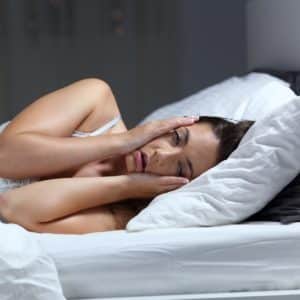Are Obstructive Sleep Apnea and Tooth Grinding Related?

What is bruxism?
From time to time, most everyone probably grinds their teeth at night while they sleep. This is harmless; however, if someone does it all the time it can lead to serious problems. You may start to have headaches, pain in the ear, and jaw and/or neck pain. Over time, your teeth may become chipped or fractured, and the enamel may start to wear away. Your teeth can become sensitive and eventually loosen. Constant grinding can lead to a painful jaw disorder such as TMJ (temporomandibular joint disorder).
What is obstructive sleep apnea?
A patient with obstructive sleep apnea has some obstruction in the airway, which interferes with breathing while they sleep. They may snore or make gasping or choking noises while they sleep, and they may wake up several times throughout the night. As with bruxism, someone may not even realize they do this while they sleep. Obstructive sleep apnea can not only make you feel sleep deprived; it can eventually lead to serious health problems such as high blood pressure.
The connection between bruxism and obstructive sleep apnea
Researchers have found that there is a high rate of people who have both of these conditions. They are not sure which disorder comes first – if bruxism results because of obstructive sleep apnea or vice versa.
However, help is available if you have sleep apnea, with treatment that may be able to help if you also grind your teeth. Dr. Marc Levin and the staff at eos dental sleep in Philadelphia are experts at helping patients with sleep apnea and can create a personalized oral appliance therapy treatment for you. You may not even realize how bad these issues are until you receive treatment and start to sleep better and your headaches go away. Call the office today at (215) 241-0700 for an appointment!
